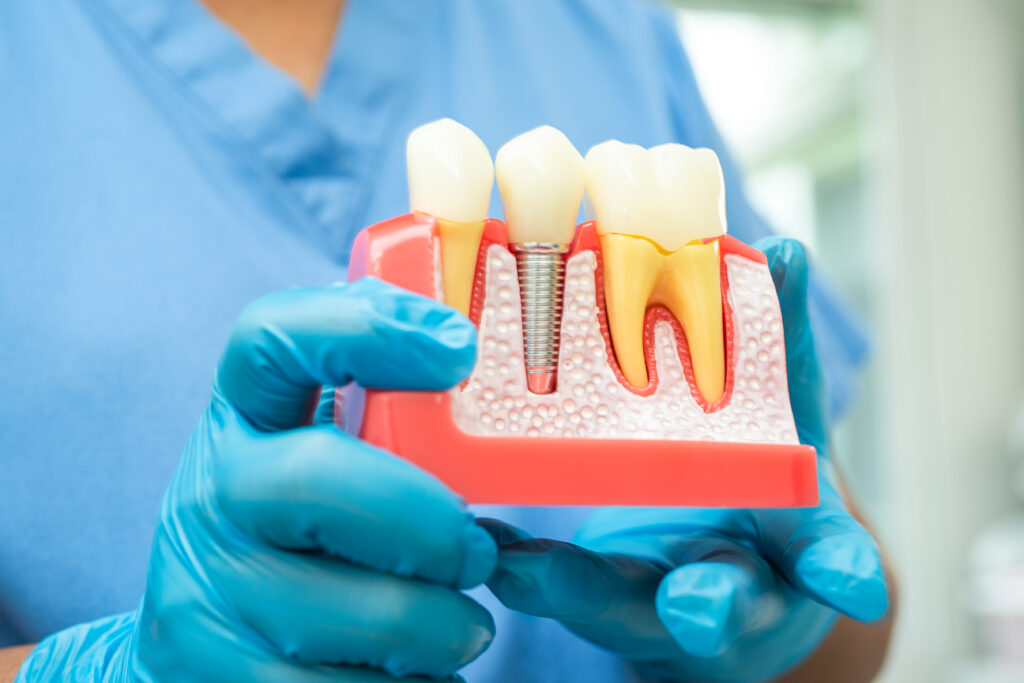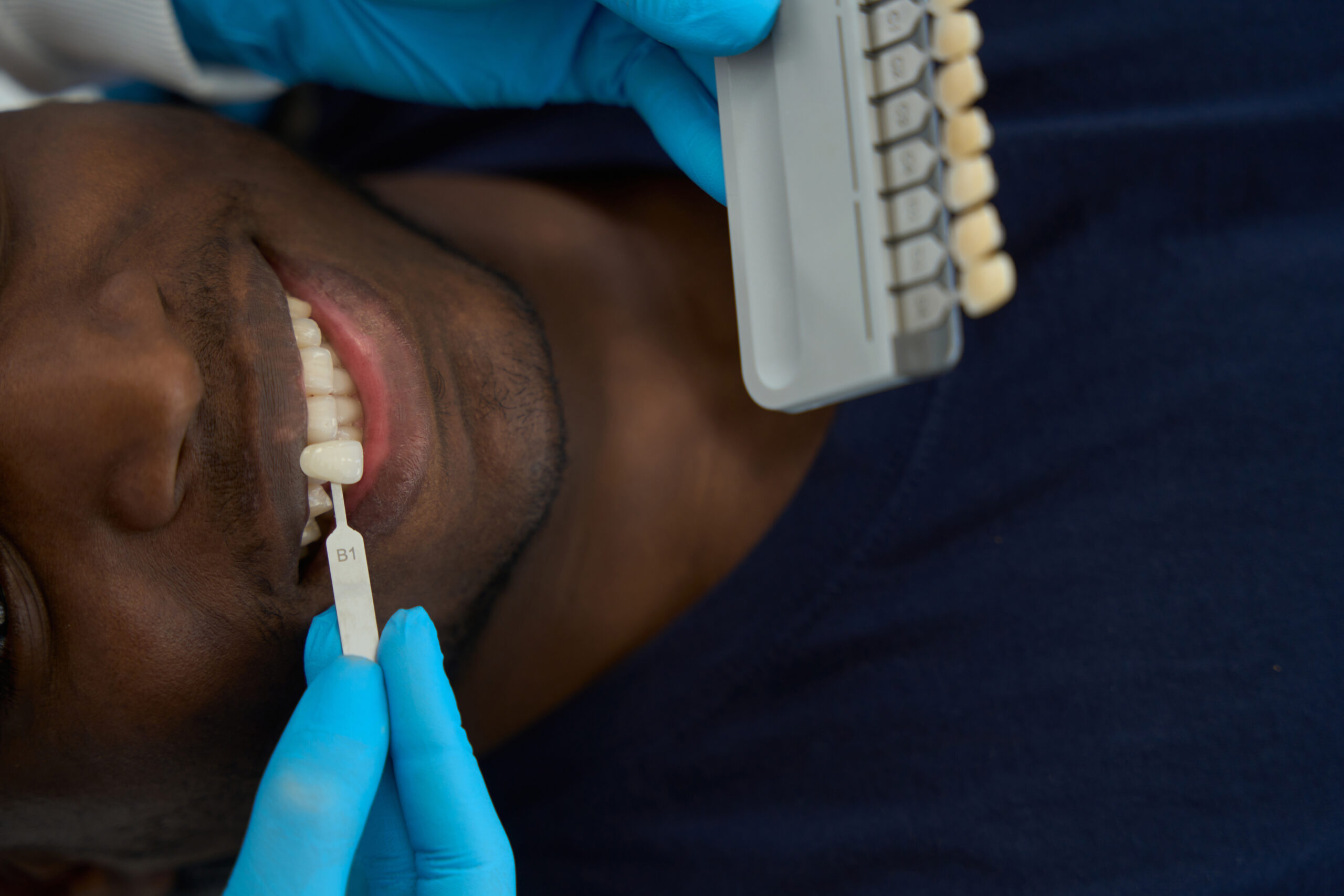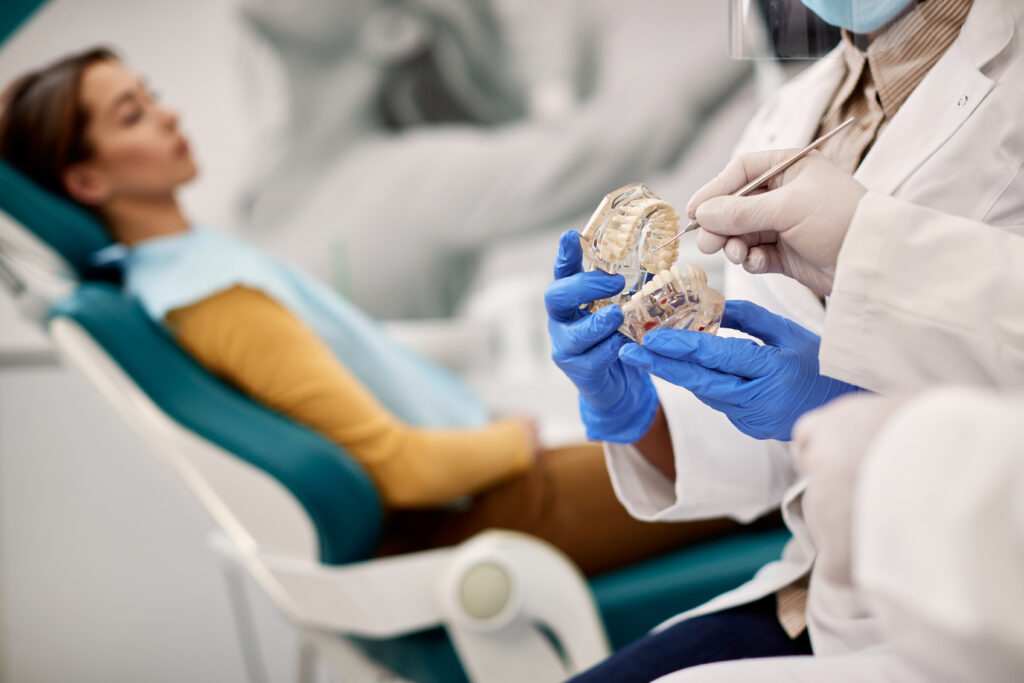
Periodontal disease — known colloquially as gum disease — is a disease that affects the gum tissue around your teeth. It also damages your jawbone if you let it go on too long.
The CDC estimates that about 50% of Americans aged 30 and over — that’s about 64.7 million Americans — suffer from periodontal disease in some form.
Since the periodontal disease affects so many Americans, we think you should understand what causes periodontal disease and what it looks like. Read on to learn more about periodontal disease.
What Causes Periodontal Disease?
Bacteria is the primary cause of gum disease. Inadequate oral hygiene habits can leave behind bacteria that consume bits of food left in your mouth. Bacteria produce a waste product called plaque that eventually hardens into tartar if left untreated.
Our body’s defense against this bacteria is to send blood containing immune cells to the affected area. This response leads to gum inflammation.
Unfortunately, this works against us. When the gums inflame, they open up a little bit, allowing bacteria to burrow deeper into your gums.
Aside from poor oral health habits, several other factors may increase your risk of gum disease:
- Excessive sugar consumption
- Teeth grinding/clenching/bruxism
- Genetics
- Tobacco use
- Stress
- Some illnesses
- Hormone changes
Symptoms of Periodontal Disease
Gum inflammation is one of the periodontal disease’s main symptoms. Gums will be red, swollen, and sensitive to the touch. They may also bleed when you brush or floss normally.
Here are some other symptoms:
- Gums receding/pulling away from teeth
- New gaps in teeth
- Pockets between gums and teeth
- Changes in the way your teeth fit when biting down
- Loose/shifting teeth
The Stages of Periodontal Disease
Periodontal disease is often used interchangeably with periodontitis, but the former is actually a stage of the latter. The two stages are:
- Gingivitis
- Periodontal disease
Gingivitis involves gum inflammation but no bone loss. It happens when plaque first begins building up on your teeth, leading to the initial inflammation.
Gingivitis is milder. Teeth are still rooted in their sockets at this point. With the right treatment, gingivitis can be reversed.
Gingivitis left untreated can progress to periodontal disease, which is much more serious. Periodontal disease occurs when pockets caused by inflammation deepen to a point where a significant amount of gum tissue as well as the bone is affected.
As the bone becomes damaged, teeth can loosen and even fall out.
When to See Your Dentist
The problem with periodontitis — as with many oral health issues — is you may not know you have it for a long time. However, swollen gums or gums that bleed with normal brushing/flossing are a good sign you have.
No matter what, you should visit your dentist regularly. They’ll be able to spot any emerging gingivitis and treat it before it gets out of control — and leads to possible tooth loss.
At Absolute Smile, our dental professionals are experts at spotting and treating gum disease. If you’re looking for a periodontist in Philadelphia to help keep your teeth shining bright and your gums resilient and healthy, contact Absolute Smile today.







